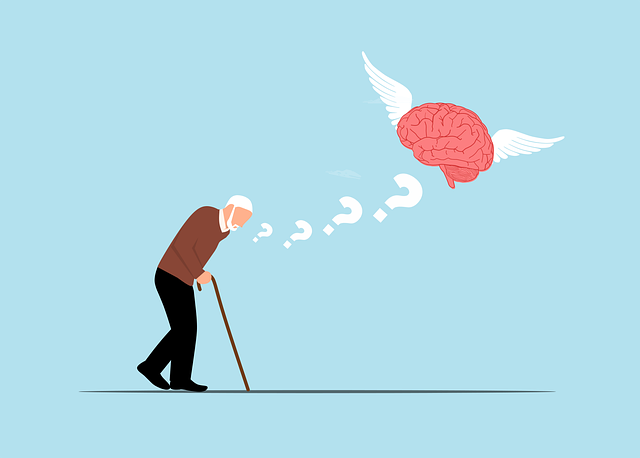Burnout among therapists and clinicians is a growing concern, driven by factors like heavy workloads and long hours. To combat this, organizations like Littleton Therapy offer comprehensive solutions including tailored therapy programs focusing on stress management, resilience building, and empathy-driven techniques. By prioritizing mental health through work-life balance strategies, flexible scheduling, clear boundaries, and stigma reduction, these initiatives not only prevent burnout but also enhance patient care.
In the demanding landscape of healthcare, burnout among providers is a pressing issue with far-reaching consequences. This comprehensive guide explores effective strategies to prevent burnout, focusing on empowering therapists and clinicians. We delve into the root causes and profound effects of this modern-day profession’s scourge, offering practical solutions inspired by Littleton Therapy techniques. From individual resilience-building to organizational changes promoting work-life balance, discover sustainable practices to safeguard your well-being and enhance patient care.
- Understanding Burnout: Causes and Impact on Healthcare Providers
- Littleton Therapy Techniques for Clinicians: Fostering Resilience and Self-Care
- Building Sustainable Practices: Organizational Support and Work-Life Balance Strategies
Understanding Burnout: Causes and Impact on Healthcare Providers

Burnout among healthcare providers is a growing concern, with potential severe consequences for both professionals and patients. It’s essential to understand that burnout isn’t simply feeling tired; it’s a state characterized by emotional exhaustion, depersonalization, and reduced personal accomplishment. In the fast-paced and emotionally demanding environment of healthcare, factors like heavy workloads, long hours, high patient expectations, and limited resources contribute significantly to this phenomenon.
For therapists and clinicians, the risk is especially high, as they bear witness to their patients’ most vulnerable states. A comprehensive approach to burnout prevention is crucial, involving individual strategies such as effective stress management and cultivating positive thinking, alongside organizational efforts like regular risk assessments for mental health professionals and the implementation of workshops focused on stress mitigation and resilience building. Services like Littleton Therapy offer valuable support through tailored therapy programs designed specifically for therapists-clinicians.
Littleton Therapy Techniques for Clinicians: Fostering Resilience and Self-Care

In the ever-demanding field of healthcare, burnout among clinicians, including therapists and physicians, has become an increasingly pressing concern. To combat this issue, Littleton Therapy offers a range of effective strategies tailored for professionals seeking to enhance their resilience and self-care practices. This therapeutic approach focuses on empowering clinicians to navigate the challenges of their careers while maintaining optimal mental health.
Littleton Therapy Techniques provide clinicians with valuable tools to foster empathy building, a key component in enhancing patient care and reducing stress. By incorporating mind over matter principles into their practice, therapists can improve their ability to manage stress and avoid burnout. These strategies not only contribute to personal well-being but also positively impact the quality of patient interactions, fostering a more supportive and effective therapeutic environment.
Building Sustainable Practices: Organizational Support and Work-Life Balance Strategies

In today’s demanding healthcare landscape, burnout among therapists and clinicians is a growing concern. To combat this, building sustainable practices through organizational support and work-life balance strategies is essential. Many organizations are recognizing the importance of providing resources for mental wellness coaching programs and trauma support services to help their employees manage stress and maintain resilience. This includes flexible scheduling, clear boundaries between work and personal life, and access to therapy for therapists-clinicians themselves, such as those offered in Littleton Therapy. By prioritizing these strategies, healthcare providers can create a healthier, more supportive environment that fosters both professional growth and personal well-being, ultimately reducing the risk of burnout.
In addition to organizational support, mental illness stigma reduction efforts play a crucial role in preventing burnout. Creating a culture where mental health is openly discussed and supported can encourage therapists and clinicians to seek help when needed without fear of judgment or repercussions. This, in turn, enhances their ability to care for others effectively while maintaining their own mental wellness. By integrating these approaches, healthcare organizations can not only prevent burnout but also enhance the overall quality of care provided to patients.
Preventing burnout among healthcare providers is a multi-faceted approach that combines individual resilience, organizational support, and sustainable practices. By understanding the causes and impacts of burnout, implementing effective therapy techniques like those offered by Littleton Therapy for therapists-clinicians, and fostering work-life balance, we can create a healthier and more fulfilling environment for everyone involved. These strategies are essential steps towards mitigating burnout, ensuring healthcare providers can continue to deliver quality care with renewed passion and purpose.











